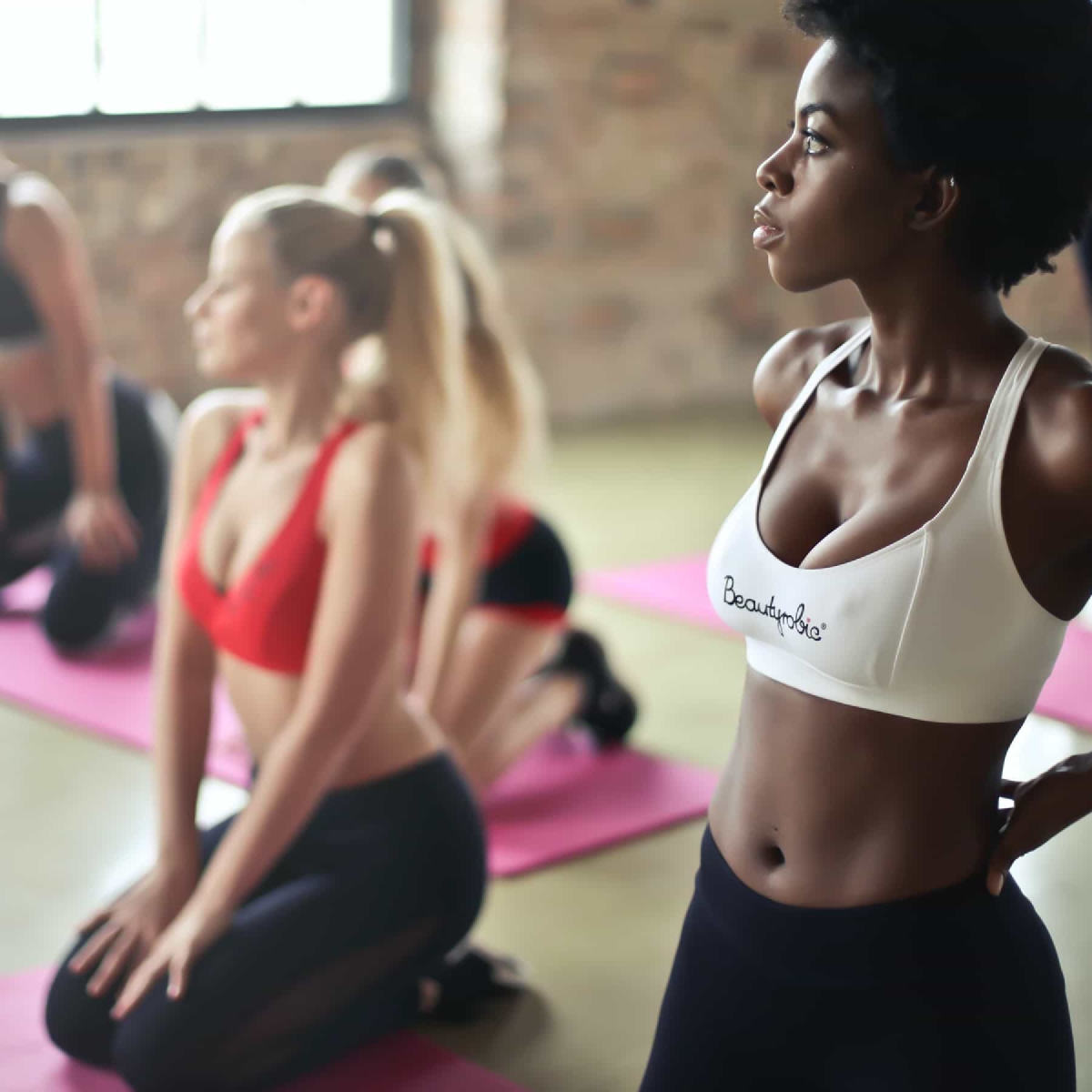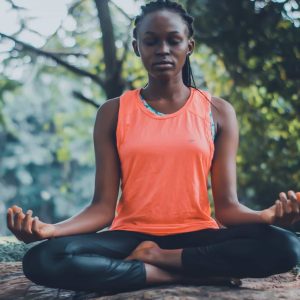
Get Fit and Feel Great: The Benefits of Fitness
If you’re looking to make some changes and get fit and healthy, then you’re in luck! The benefits of fitness are far-reaching and can be incredibly rewarding — not only for the way you look, but the way you feel, too. If you’re wondering exactly what those benefits are, you’ve come to the right place. In this article, we’ll explore how embracing a fitness lifestyle can totally transform your wellbeing — and the way you live your life. Let’s get started!
List of Content
- 1. What Is Fitness and Why Should You Care?
- 2. How to Get Fit and Feel Great
- 3. The Positive Benefits of Exercise
- 4. Setting Realistic Goals
- 5. Tips for Sticking to Your Fitness Plan
- 6. Making Exercise Fun and Enjoyable
- You Ask, I answer

1. What Is Fitness and Why Should You Care?
Fitness is all about maintaining good physical health and mental wellbeing. Exercise, nutrition, and plenty of rest are the key components of a good fitness plan. It’s not just about looking good – physical fitness is equally important for your mental health.
The benefits of an active lifestyle are numerous – and go beyond just looking muscly. Here’s why you should give fitness some extra focus:
- Improved cardiovascular health – Regular exercise helps lower your risk of developing heart disease and stroke, as well as keeps blood pressure levels in check.
- Reduced stress levels – Exercise is a great way to reduce stress – it increases endorphins and helps channel energy in positive directions.
- Mental wellbeing – Exercise is also beneficial to cognitive health, giving your brain the boost it needs to stay sharp.
- Better sleep – Exercise can help you wind down after a long day, enabling you to get the rest your body needs.
These days, formal exercise routines such as weightlifting or running aren’t the only way to stay fit. Activities like gardening, yoga, and hiking can have just as many benefits. So, if you’re feeling overwhelmed by the idea of getting fit, don’t worry – there are plenty of ways to achieve your fitness goals.

2. How to Get Fit and Feel Great
Get Moving
The most important way to get fit and feel great is to get plenty of exercise. It doesn’t need to be intense or time-consuming; even just 30 or 40 minutes of activity per day has huge benefits. Take a brisk walk, go for a bike ride, or take an online fitness class; the options are endless. If you need extra motivation, consider joining a local gym or finding an online running or biking group.
Eat Healthy
Nutrition plays a big role in your overall health. Make sure you’re getting plenty of fruits, vegetables, and whole grains. Also, incorporate lean proteins into your diet, like lean meats, eggs, and nuts. Swap out sugary snacks for healthier options like fruits and vegetables. And keep an eye on portion sizes; too much food can do more harm than good.
Prioritize Self-Care
Self-care is about taking the time to focus on yourself. Whether it’s taking a relaxing bath, meditating, or making time for your hobbies, self-care is key to looking and feeling your best. You should also make sure you’re getting enough sleep; adults should get at least 8 hours of sleep a night. The better rested you are, the more energy and motivation you’ll have for a workout.
Be Positive
Finally, remember to stay positive and focus on the positives! Set realistic goals for yourself and don’t beat yourself up if you don’t reach them. Celebrate the progress you make and be kind to yourself. You can do it – stay focused, stay motivated, and you will get to where you want to be.
3. The Positive Benefits of Exercise
Physical Benefits
Regular exercise can increase physical strength, endurance, and flexibility. It can also help maintain a healthy weight and improve bone density and joint health. These physical benefits can lead to improved overall health and well-being.
Mental Benefits
Physical exercise can have a positive effect on mental health. Exercise releases endorphins, which are chemicals that can act as natural painkillers and can help improve your overall mood. Exercise can also help reduce stress levels, combat anxiety and depression, and reduce feelings of fatigue.
Social Benefits
Exercise can bring people together, make you feel more connected, and promote social interaction. Doing activities or sports with friends and family can be fun and is a great way to stay active and stay connected with the people in your life.
Health Benefits
Regular exercise can help reduce your risk of major illnesses, such as heart disease, stroke, type 2 diabetes, and some types of cancer. It can also help with other medical conditions, such as high blood pressure, sleep apnea, and osteoporosis.
Some of the health benefits may be even greater if you can make exercise a part of your daily routine.
4. Setting Realistic Goals
1. Start small: Start with small and achievable goals so that you can stay motivated and keep going towards bigger and better goals. Try to break down bigger challenges into smaller and manageable goals so that you don’t feel overwhelmed and burned out.
2. Be specific: Don’t just write “lose weight” as your goal, instead break it down into something like “lose 2kgs in three weeks.” This will help you come up with a plan to achieve the desired result.
3. Make it realistic: It’s best to set realistic and achievable goals and not put too much pressure on yourself to get results too soon. Always give yourself at least two weeks to achieve the set goals and break them into smaller measurable milestones.
4. Utilize resources: Utilize resources at your disposal and plan your journey to success.
- Seek help/advice from someone who has achieved the same goal.
- Join support groups or forums so that you can stay motivated to achieve the goal.
- Subscribe to newsletters or other online resources that can help you achieve your goals.
- Write down your plan (the goal, steps to success, target date etc.) and stick it somewhere where it is visible so that it will keep you inspired and focussed.
5. Tips for Sticking to Your Fitness Plan
1. Get started right away
Nothing promotes motivation like a good start. If you want to jumpstart your fitness plan, the best way to start is to begin as soon as possible. Then, as you keep progress, you will be motivated to stick to it. Don’t be afraid to start small and work your way up, you will have plenty of time to reach your goals.
2. Find an accountability partner
Having a friend or colleague that also shares the same fitness goals as you can be a great way to stay on track. Having someone to compare your progress with and cheer you on can be the perfect motivation. You can encourage each other and discuss what has worked and what hasn’t.
3. Set realistic goals and milestones
Your fitness goals should be SMART; specific, measurable, attainable, realistic, and time-oriented. Break big goals down into smaller, targeted milestones. This will make achieving the ultimate goal seem much more achievable. Don’t forget to give yourself a pat on the back when you do reach one of your goals. Celebrate your achievements, big or small.
4. Incorporate physical activity into your daily routine
It may feel hard to fit in exercise into your already crammed schedule. But there is always time for other activities in your day. Take advantage of leisure time by taking the stairs or going for a walk with the dog. You can also perform simple exercises like stretching or jumping jacks throughout the day. You don’t need to spend hours on the treadmill or lifting weights in a gym to make an impact. Try adding physical activity into your daily routine and you might just be surprised!
6. Making Exercise Fun and Enjoyable
Exercising can often be a tedious, tiresome activity that’s easily pushed to the sideline. However, with a lifestyle fueled by fitness – where regular exercise is necessary – the key to success lies in making the workout fun and enjoyable. Here are some tips for adding more delight (and fewer yawns) into your fitness regime:
- Choose Activities You Love: Make sure to select physical activities that you actually want to do! Don’t choose something because it seems like the thing to do, but because it’s something that genuinely interests you.
- Music to Your Ears: These days it’s easier to play music on-the-go. Get a pair of Bluetooth earphones and sync your favourite songs on your device to keep your feet and spirits moving.
- Change Things Up: If you start to get bored with the same exercises, branch out and try something new. It can jolt you out of the rut and give you a new perspective of the activity.
- Even Better With Friends: Sharing the activity with a friend or two can add a whole new layer of fun – and motivation. Book regular social fitness sessions or even start up a running club with your group.
Making physical activity enjoyable and entertaining doesn’t have to be labour intensive. With small changes, you can make a world of difference and make every workout a little more enjoyable.
Remember to keep your goals realistic and to get your heart rate up! Exercise can be great for physical and mental health, and it’s important to turn it into something fun and pleasurable – not a chore.
You Ask, I answer
Q: What are the benefits of getting fit?
A: Getting fit can lead to improved physical health, including increased strength, better heart health, improved sleep quality, and improved overall mental health. Additionally, regular exercise can help you reach and maintain a healthy weight, which can reduce the risk of obesity-related health issues.
Q: What types of exercise should I start with?
A: Depending on your fitness level and goals, you may want to try a variety of exercises. Beginner exercises can include walking, jogging, swimming, and bodyweight exercises like squats and push-ups. For more advanced workouts, you might want to try circuit training, weight training, or high-intensity interval training.
Q: Is it ok to get fit on my own?
A: If you’re a beginner, it can be beneficial to get professional guidance to ensure that you are performing exercises correctly and to provide motivation. However, if you are already comfortable exercising, it is possible to get fit without professional help. There are many online resources and fitness apps that provide personalized workouts and guidance.
Q: How long should I exercise for each session?
A: Generally speaking, you should aim for about 30 minutes of exercise per day to see the benefits of fitness. However, everyone’s needs may be different. You may want to adjust the duration and intensity of your workouts based on your individual goals and fitness level.
If you’re looking for ways to improve your life, give fitness a try. Eating right and exercising regularly will help you get fit and feel great. Take advantage of all that your physical and mental health have to offer and begin your journey to a healthier, happier version of yourself today. Start small and make healthy changes that you can maintain in the long-term – your body will thank you for it!

